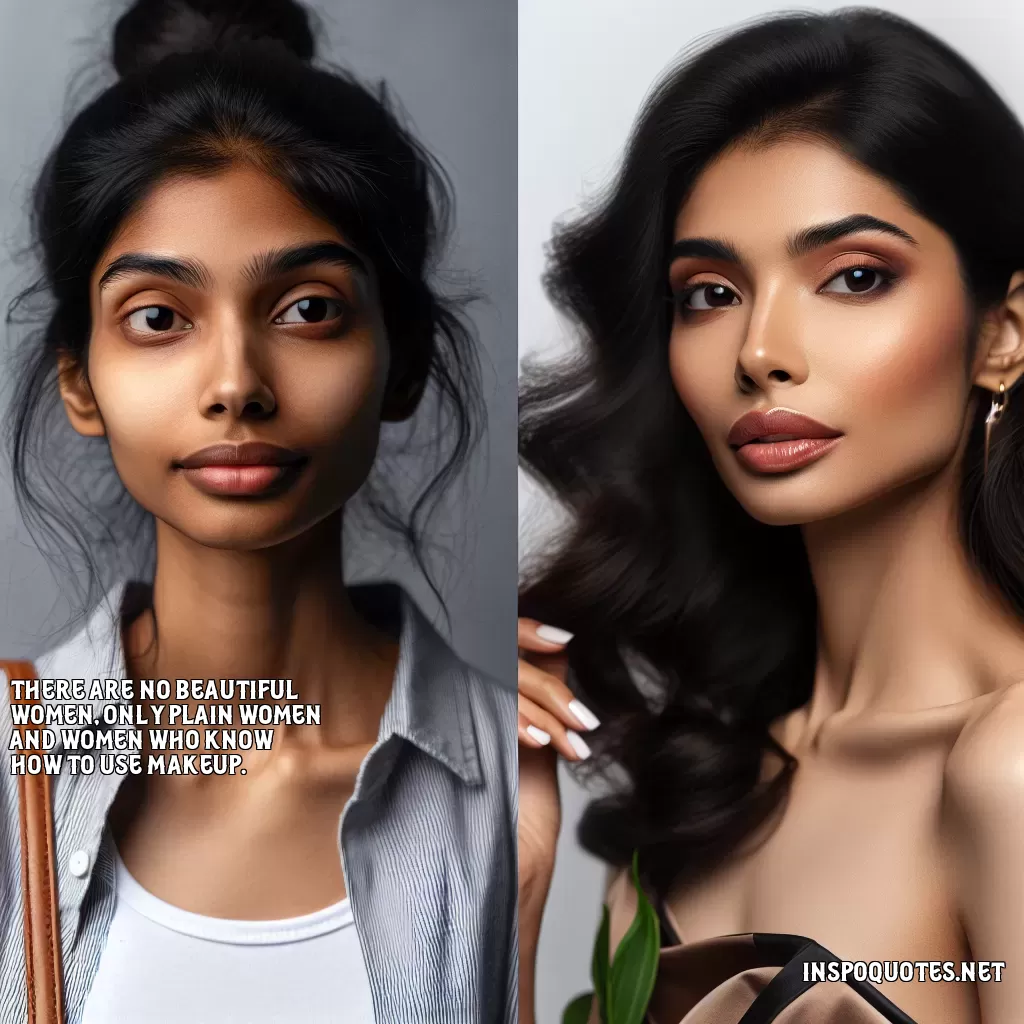
There are no beautiful women, only plain women and women who know how to use makeup.
Author: Gabriel García Márquez
👁️ 9 views

There are no beautiful women, only plain women and women who know how to use makeup.
👁️ 9 views
The quote "There are no beautiful women, only plain women and women who know how to use makeup" can be seen as a provocative statement that challenges traditional notions of beauty and the role of cosmetics in enhancing or altering one's appearance. At its core, the quote suggests that what society often perceives as beauty may not be an inherent quality, but rather a construct that can be achieved through the application of makeup. This quote underscores the powerful role that makeup plays in shaping perceptions of beauty. Makeup can be seen as an art form that enables individuals to highlight certain features, conceal perceived flaws, and even transform their appearance entirely. The statement implies that beauty is not an intrinsic attribute but rather a skill or practice that can be cultivated. It suggests that anyone has the potential to be considered beautiful if they learn how to use makeup effectively. On a deeper level, this quote can also provoke discussions about the societal standards of beauty and how they are often dictated by media and culture. It raises questions about authenticity and whether our perceptions of beauty are genuine or influenced by external factors. By suggesting that all women are essentially "plain" without makeup, the quote critiques how societal norms often pressure individuals to conform to certain beauty ideals. Furthermore, it brings to light the varying opinions on makeup—some view it as an empowering tool of self-expression, while others see it as a mask that hides one's true self. Ultimately, this quote invites reflection on the nature of beauty and encourages individuals to consider how they define attractiveness, both for themselves and within the context of societal expectations.
Quote By: Gabriel García Márquez
Gabriel García Márquez (1927-2014) was a Colombian novelist and Nobel Prize laureate, celebrated for his pivotal role in popularizing magical realism, a literary style that blends fantastical elements with realistic settings. His most acclaimed works, including "One Hundred Years of Solitude" and "Love in the Time of Cholera," explore themes of solitude, love, and the complexities of Latin American history and culture. García Márquez's storytelling captivated readers worldwide, earning him a lasting place in the canon of modern literature.
Bio added on: 2025-02-14 19:00:14